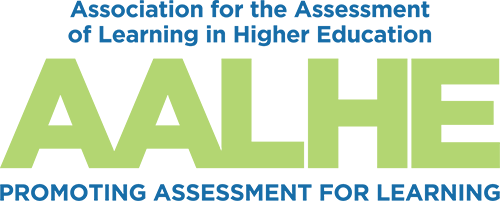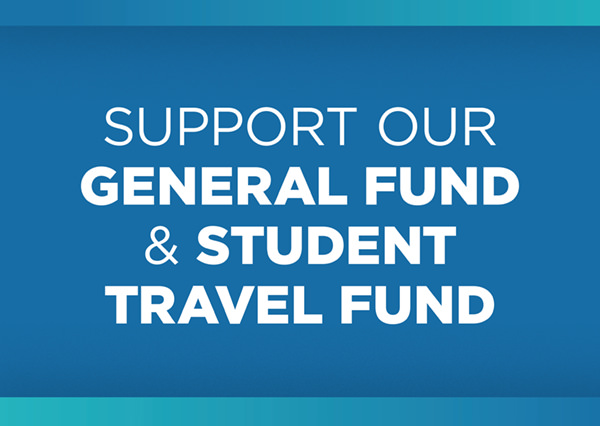- Home
- About AALHE
- Board of Directors
- Committees
- Guiding Documents
- Legal Information
- Organizational Chart
- Our Institutional Partners
- Membership Benefits
- Member Spotlight
- Contact Us
- Member Home
- Symposium
- Annual Conference
- Resources
- Publications
- Donate
EMERGING DIALOGUES IN ASSESSMENTHelping Students Find Value in their Writing Assignments September 5, 2024 Thomas Polk, PhD, George Mason University At the beginning of my career, I (Tom) was teaching a first-year writing course that was a requirement for all students at the college, a course that many postsecondary institutions have. It was the first day of class, and the students and I were spending time learning about one another. A question I had asked the students to discuss concerned their goals: What did they hope to learn in this course? What did they want to get out of this course? While many of the students shared some version of “I want to learn how to write better,” I’ll never forget the response of one student in the class: “My goal is to get a C and pass.” The room was large with students sitting at clustered computer workstations, and he was sitting at one of the clusters in the back of the room partially reclining in his computer chair. The students in the class laughed somewhat hesitantly following his comment, as did I. I remember thinking his candor was somewhat refreshing and, to be honest, he probably said what I had thought when I was asked the same question during my first year of college. And though I appreciated his honesty, the comment was also disquieting; I remember feeling embarrassed because I didn’t know how to respond. I believed that the class was valuable, or at least it could be, but his comment challenged that belief. The “problem”: When students don’t see the value in writing assignments As I’ve continued in my career as a faculty member and curriculum developer, I’ve learned that my experience wasn’t unique. Many of us encounter students who see our writing courses (and other general education courses) as simply requirements they need to check off, impediments that aren’t meaningfully connected to their lives and career goals. This perception feels amplified now, at a time when the value of higher education overall is increasingly questioned. Many of us are wondering, “How can we help students who are disengaged in these types of courses feel like college is worth it and find meaningfulness”? One possible response to this question came in a previous issue of Emerging Dialogues, in which Wisner wrote about the integration of utility-value assignments into her ecology course. At three separate times throughout the semester, Wisner prompted her students to write reflective narratives (300-500 words) that explored how the topic they were studying related to their own lives, including personal examples. These assignments counted for only a small portion of their grades (i.e., “low stakes” assignments) where students did not have to worry about writing perfectly or the assignment adversely affecting their grades; rather, the exercise was more about learning through the process of reflective writing. The author suggested that utility-value assignments could help students personalize and find meaning in their learning (Wisner, 2023). As writing-across-the-curriculum (WAC) specialists and assessment enthusiasts, we were happy to see the article because the author’s experience resonates with much research in our field, particularly related to the pedagogy known as “writing-to-learn,” which promotes low-stakes approaches to teaching course content through writing tasks that emphasize exploration and discovery over performance and refinement. Another answer might come from research that we (Joan and Tom, along with colleagues from our Composition program) recently conducted at George Mason University (GMU) exploring students’ experiences with writing across disciplines, particularly assessing how meaningful writing activities could relate to student learning. GMU is a public, R1, minority-serving institution in the DC metropolitan area of Virginia. The project was inspired by Eodice, Geller, and Lerner’s (2016) The Meaningful Writing Project, which demonstrated personal connection and relevancy to be among the most common characteristics of meaningful projects for the over 700 students included in their study. While inspired by this study, we wanted a local take on the concept of meaningfulness to inform both faculty and curriculum development efforts at our institution. Our research findings also demonstrated the importance of students’ “perceived usefulness” (Hulleman & Harackiewicz, 2021) of activities and assignments. Our study participants, 28 seniors at GMU, explained that their meaningful writing projects enabled them to see a link between their writing and their personal or professional goals, and/or the writing assignment gave them a sense of community with their instructors and peers. In turn, our study’s participants felt more engaged in the writing-learning process and more confident about their writing competencies. Through our analysis of the participants’ experiences, we identified three characteristics of meaningful writing: relevance, engagement, and transformation. The image below captures these characteristics and offers them as guiding principles that faculty can incorporate into their assignments to increase student engagement and support the transfer of student learning across the curriculum.
Hwang, J. & Polk, T. (2023) Relevance refers to the opportunity for students to work on projects relevant to their academic, personal, or professional lives. Engagement refers to involvement in a multi-stage writing process supported by faculty feedback and peer interaction that also asks them to consider real or imagined audiences for their writing. Transformation refers to the development of insights into their learning, subject matter, and identities alongside a growing sense of accomplishment, motivation, and confidence. In students’ testimonies, these three elements appeared in sequence: the relevance of writing projects to students’ lives facilitated their engagement with the writing process and, as a result, supported and led to transformational learning1. Students described having an increased sense of confidence and motivation for writing during and following the completion of writing projects they described as meaningful. This was, in fact, one of the study’s most salient findings: almost all participants reported these gains in relation to their meaningful writing projects. One solution: Designing (and assessing) meaningful writing assignments We began this article considering the question many educators ask when they observe their students struggling to find the relevance of our courses to their lives beyond the university: how can we help them find meaning in their learning? Our research into meaningful learning, we think, suggests that educators should give students adequate time and space to make those connections for themselves. That is, we as educators – whether we are instructing in the classroom, engaging in learning outcomes assessment, or supporting assignment or course design – should prompt our students to consider how the content and their learning have value beyond a graduation or curricular requirement. An added benefit to this type of reflective writing is that it can serve as a useful indirect measure of student learning, yielding more robust assessment findings with minimal extra workload for the students and instructors. This is what we see in Wisner’s utility-value assignments and what we learned from our study’s participants when asking them about their meaningful experiences with writing-learning. Best assessment practice suggests that learning happens most effectively when educators are transparent about their learning objectives and make connections between those objectives and the everyday activities of a course, including its assignments (Hulleman & Harackiewicz, 2021). Helping students connect the material to their lives by engaging in reflective meaningful writing can clarify the purpose of our assignments, signal our intentions to our students, increase the perceived value of the task for students, and enhance their learning in the process.
References Eodice, M., Lerner, N., & Geller, A. E. (2016). The Meaningful Writing Project. Utah State University Press. Hulleman, C. S., & Harackiewicz, J. M. (2021). The utility-value intervention. Handbook of wise interventions: How social psychology can help people change, 100-125. Hwang, J., & Polk, T. (2023). Meaningful Writing: What Students Say about It and How Faculty Can Design for It. https://wac.gmu.edu/wp-content/uploads/23-Designing-meaningful-writing-projects.pdf Wisner, E. M. (2023). Helping students link course content to their own lives through utility-value writing assignments. Emerging Dialogues in Assessment. https://www.aalhe.org/emerging-dialogues---helping-students-link-course-content-to-their-own-lives-through-utility-value-writing-assignments |


